Within a class a class method cannot refer to instance varia
Within a class, a class method cannot refer to instance variables.
True
False
1 points
QUESTION 2
All methods in Java must be a member of a class.
True
False
1 points
QUESTION 3
A static method is always a class method, and so can be used regardless of whether any objects of the class have been created.
True
False
1 points
QUESTION 4
Braces encompass the header and body of a class definition.
True
False
1 points
QUESTION 5
You cannot create an equivalent loop using a for() statement in place of a while() statement.
True
False
1 points
QUESTION 6
Only the Java Virtual Machine (JVM) needs to be specific to an operating system. All class code can be moved to a different system and still execute.
True
False
1 points
QUESTION 7
Java is an extension of HTML, as in JavaScript.
True
False
1 points
QUESTION 8
Return data types are not allowed for constructors, not even void.
True
False
1 points
QUESTION 9
In Java, the literal constant, 3.14159, would be stored as type float, just as with C/C++.
True
False
1 points
QUESTION 10
The default access specifier for a class is public.
True
False
1 points
QUESTION 11
You may not nest one block of code within another.
True
False
1 points
QUESTION 12
Although usually not the case, an object may be referenced by more than one reference variables at the same time.
True
False
1 points
QUESTION 13
Unlike C/C++, array bounds are checked in Java.
True
False
1 points
QUESTION 14
To determine the size of a variable, use the sizeof() operator, just like C/C++.
True
False
1 points
QUESTION 15
A char data type in Java is two bytes, not one.
True
False
1 points
QUESTION 16
Both variables declared as parameters in a method header, and those declared within a method body, are local to the method and thus allocated temporarily.
True
False
1 points
QUESTION 17
An int data type in Java, as with C/C++, may be 2 or 4 bytes.
True
False
1 points
QUESTION 18
All arrays have a data member called length.
True
False
1 points
QUESTION 19
In Jave, variables of type boolean have only the values true or false, not 0 or non-zero.
True
False
1 points
QUESTION 20
Although not required, it is an accepted programming convention to name variables using all lowercase and only capitalizing the first character of concatenated words, as in initialPayRate.
True
False
Solution
QUESTION 1
Within a class, a class method cannot refer to instance variables.
Answer: False
QUESTION 2
All methods in Java must be a member of a class.
Answer : True
QUESTION 3
A static method is always a class method, and so can be used regardless of whether any objects of the class have been created.
Answer: True
QUESTION 4
Braces encompass the header and body of a class definition.
Answer: False
QUESTION 5
You cannot create an equivalent loop using a for() statement in place of a while() statement.
Answer : False
QUESTION 6
Only the Java Virtual Machine (JVM) needs to be specific to an operating system. All class code can be moved to a different system and still execute.
Answer : True
QUESTION 7
Java is an extension of HTML, as in JavaScript.
Answer: False
QUESTION 8
Return data types are not allowed for constructors, not even void.
Answer : True
QUESTION 9
In Java, the literal constant, 3.14159, would be stored as type float, just as with C/C++.
Answer : true
Explanation : a literal constant can be stored in a float type but not directly. Either we have to write f or F at the end of literal or use type casting.
Ex: float a=3.14159; wrong
float a=3.14159f; correct
float a=(float)3.14159; correct
QUESTION 10
The default access specifier for a class is public.
Answer : False
Explanation: In this case, the class is called package access/private. It means the class can be accessible in any where within the same package.
QUESTION 11
You may not nest one block of code within another.
Answer : False
QUESTION 12
Although usually not the case, an object may be referenced by more than one reference variables at the same time.
Answer : True
QUESTION 13
Unlike C/C++, array bounds are checked in Java.
Answer : True
QUESTION 14
To determine the size of a variable, use the sizeof() operator, just like C/C++.
Answer : False
QUESTION 15
A char data type in Java is two bytes, not one.
Answer :True
QUESTION 16
Both variables declared as parameters in a method header, and those declared within a method body, are local to the method and thus allocated temporarily.
Answer : True
QUESTION 17
An int data type in Java, as with C/C++, may be 2 or 4 bytes.
Answer : false
QUESTION 18
All arrays have a data member called length.
Answer : True
QUESTION 19
In Jave, variables of type boolean have only the values true or false, not 0 or non-zero.
Answer : True
QUESTION 20
Although not required, it is an accepted programming convention to name variables using all lowercase and only capitalizing the first character of concatenated words, as in initialPayRate.
Answer : True
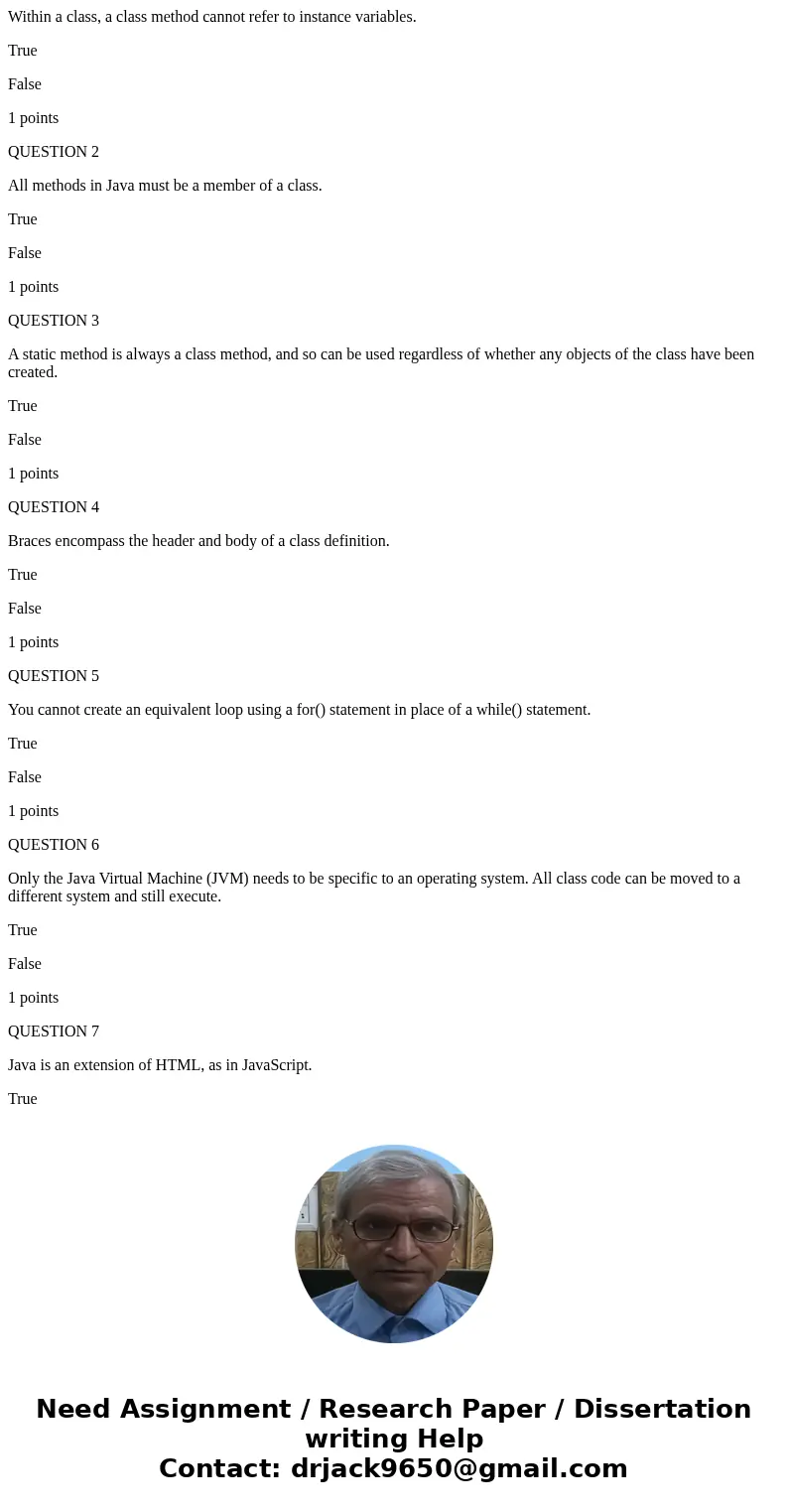
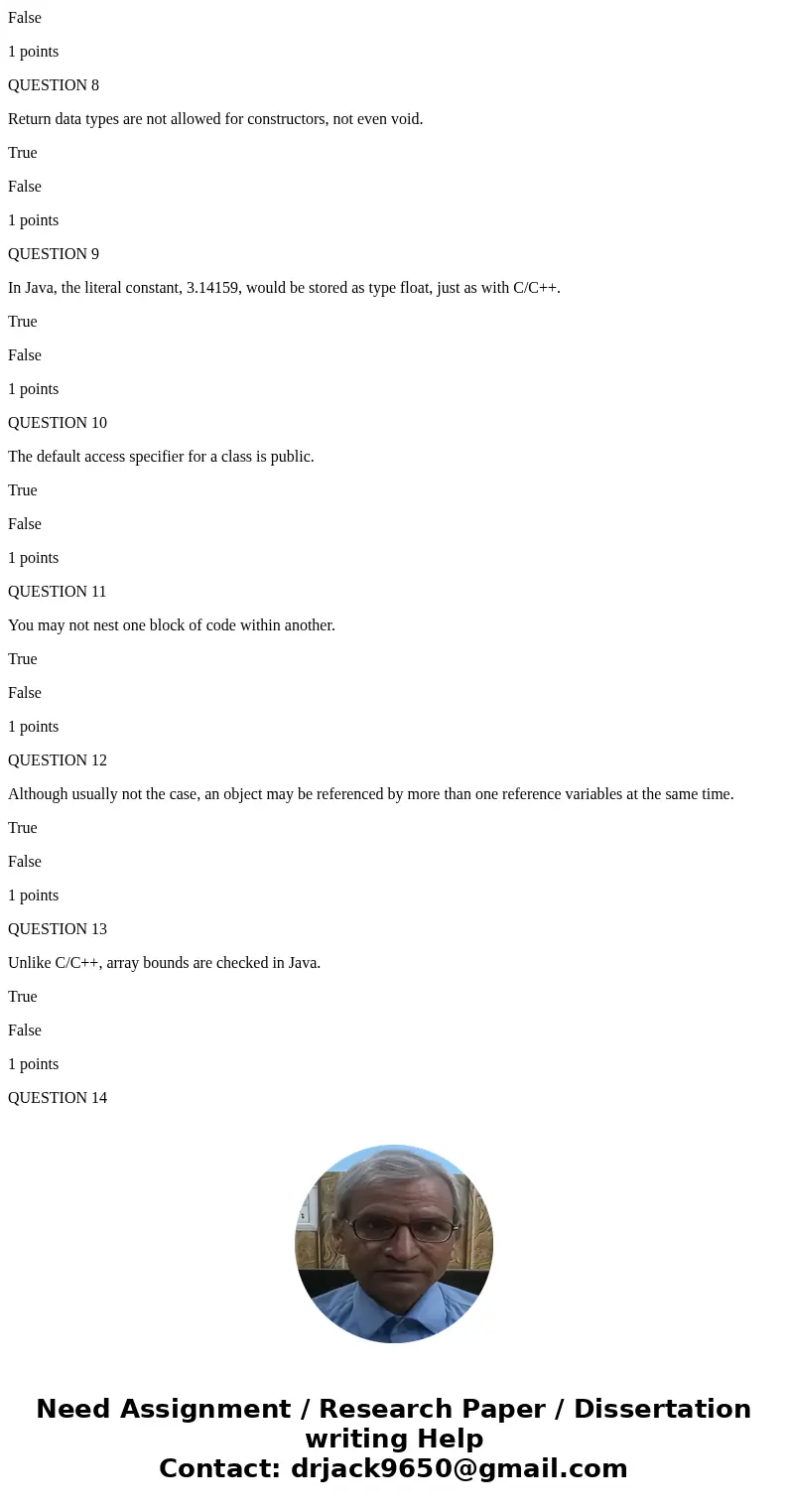
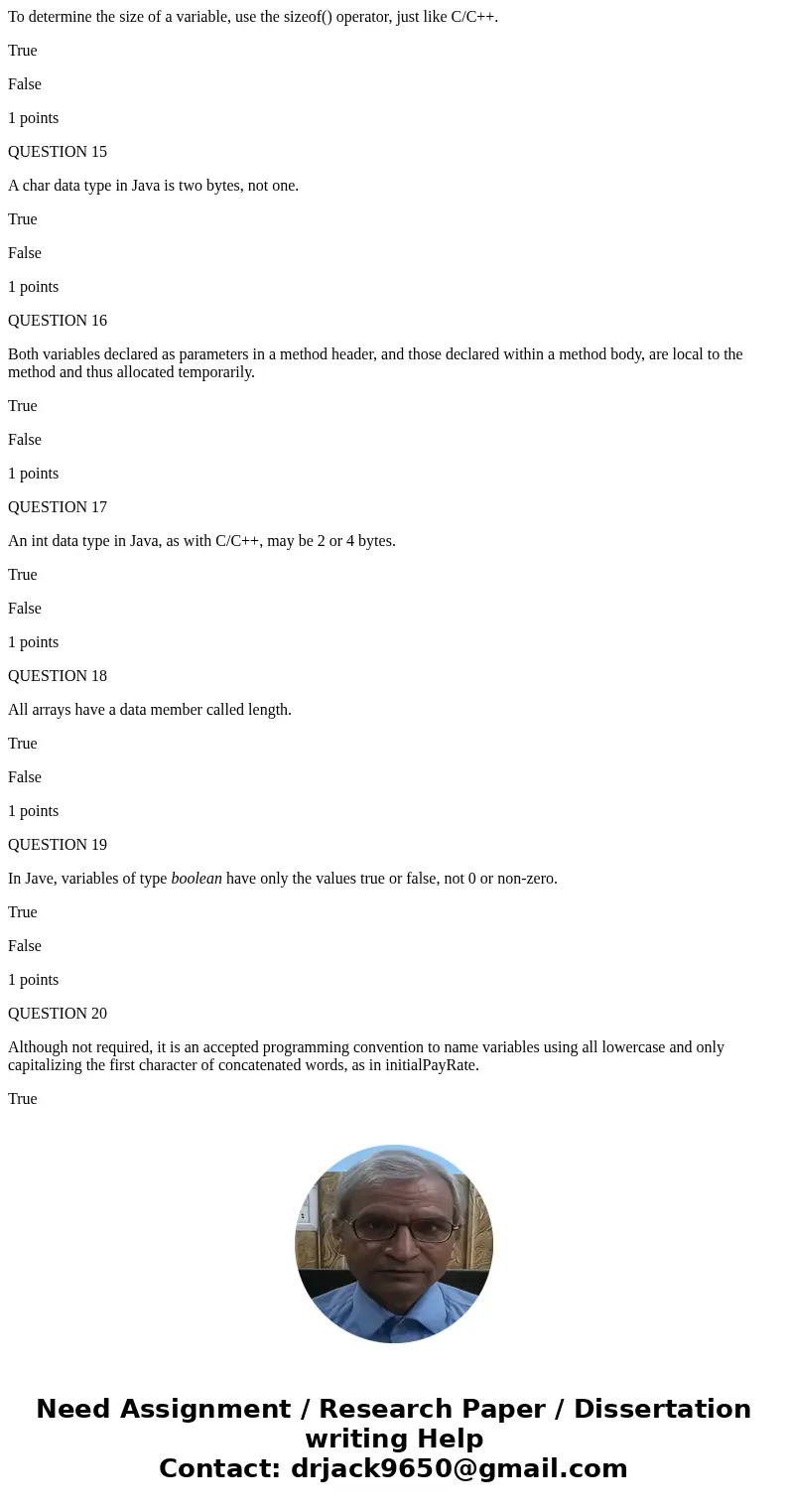
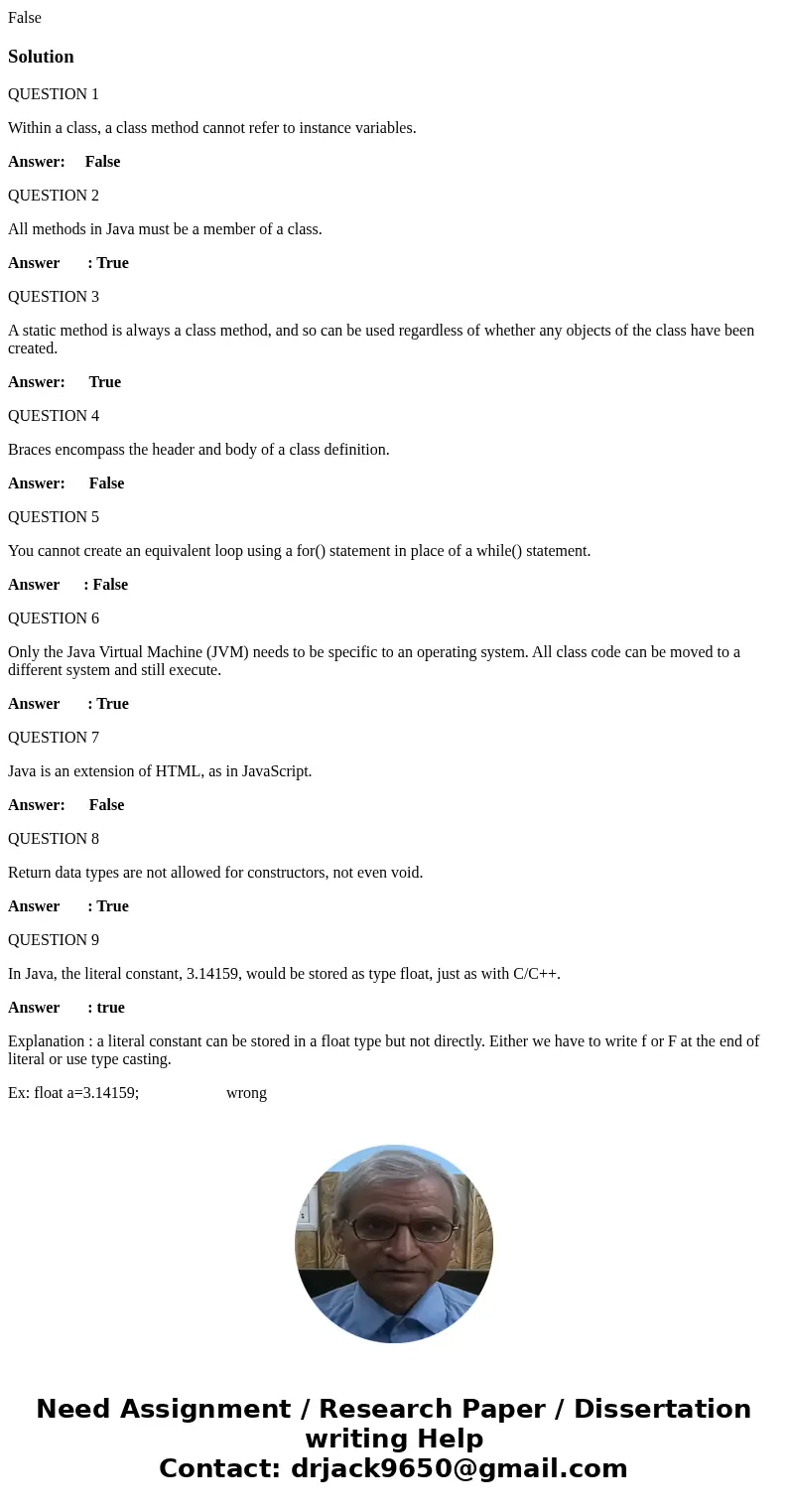
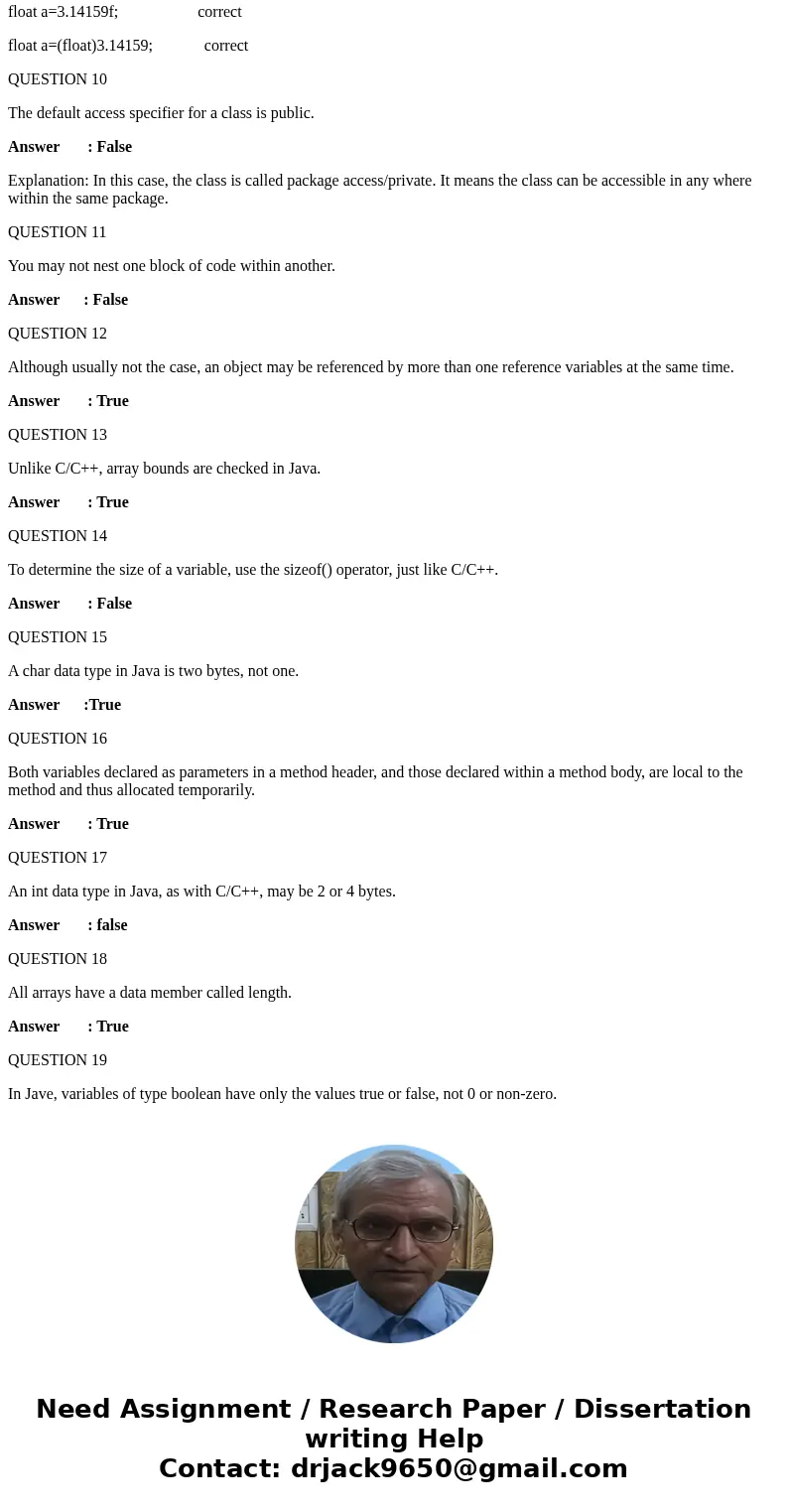
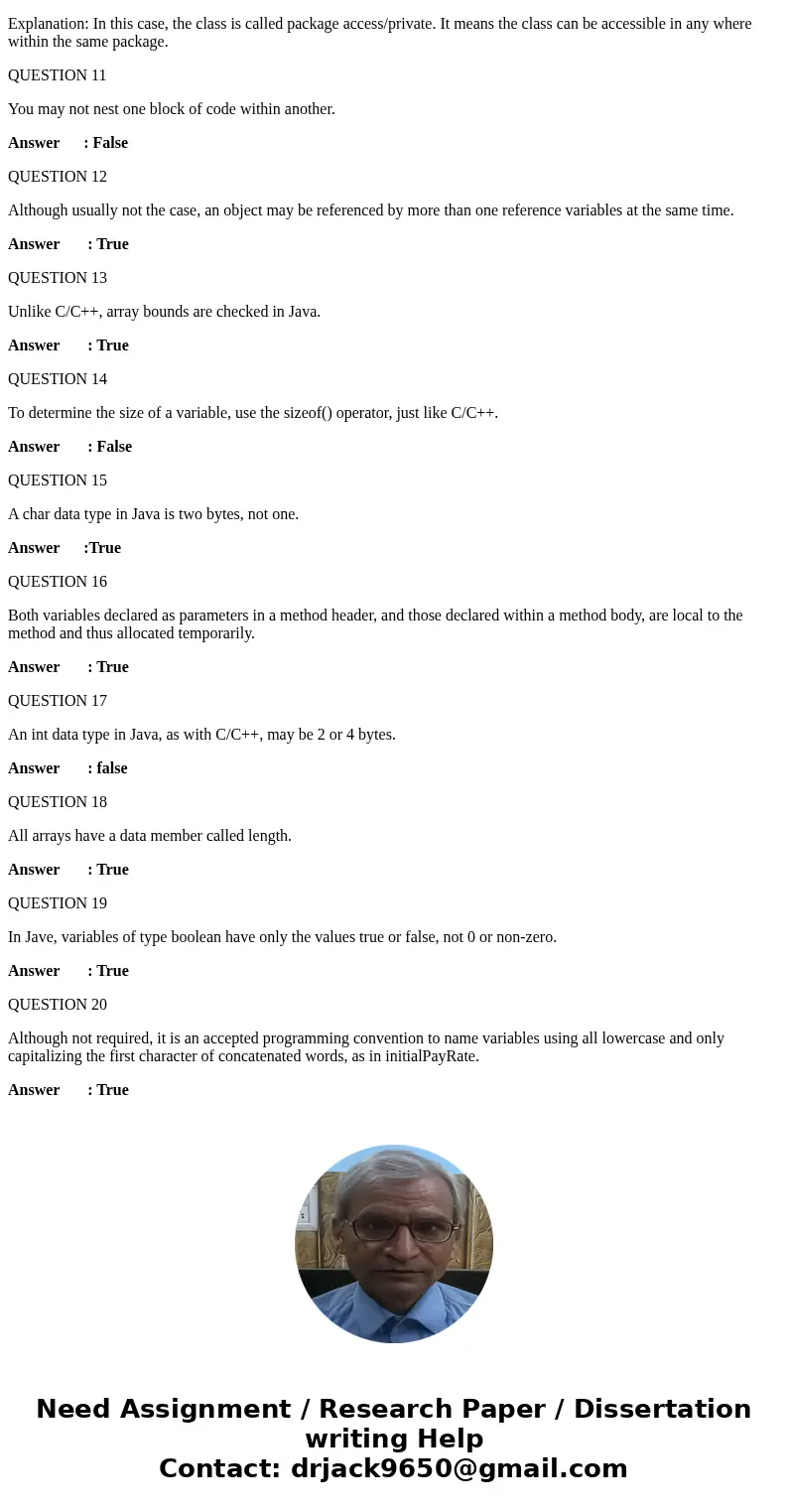
 Homework Sourse
Homework Sourse